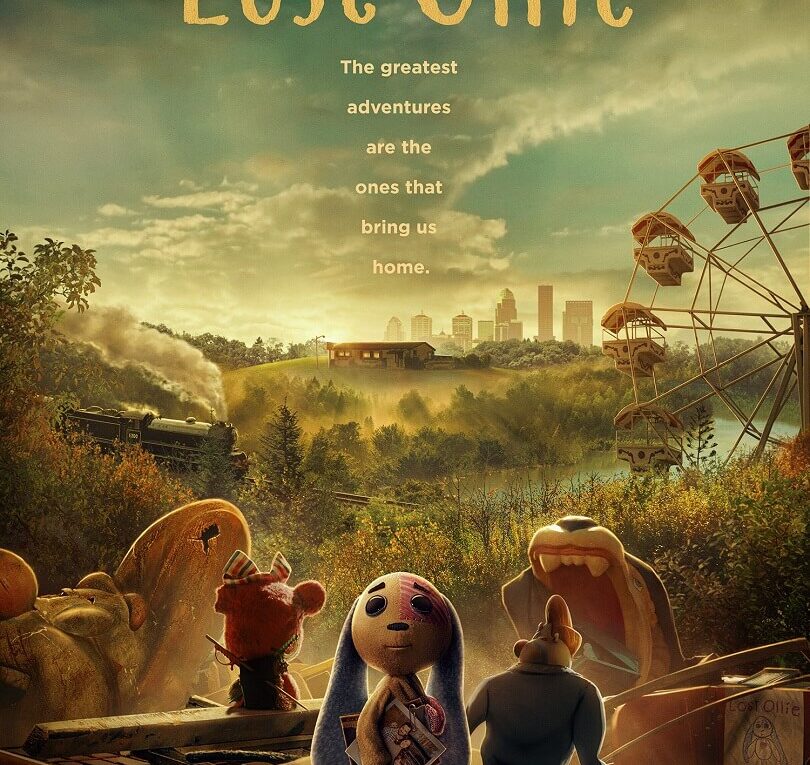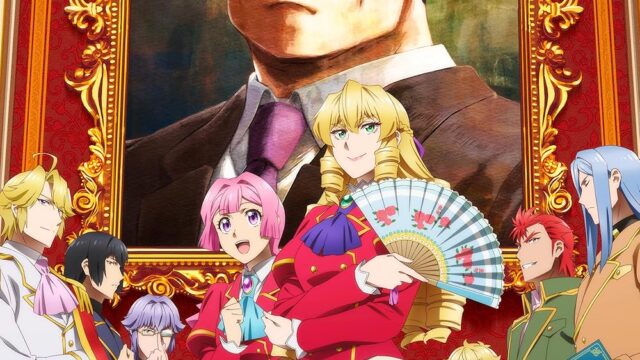Season Review: Lost Ollie Season One
Faithful adaptations can be a tricky thing. For all intents and purposes, the premise for Toy Story 3 is largely the true Ollie’s Odyssey, just with different toys and such, but the plot is nearly identical, so if you’re looking for Lost Ollie to be the true adaptation of the classic children’s book from William Joyce, I’d recommend Toy Story 3.
Shannon Tindle’s adaptation of the Ollie characters does a few things differently from it’s source material, but as I’m trucking through the series I can’t help but think the same way when I first watched Chris Nolan’s The Dark Knight and it’s pretty close adaptation of The Long Halloween. While Nolan took a few swings different than the aforementioned source material, the film’s excellent performances were/and are, legendary, so much so that it helps the film stand on it’s own and not tied to adaptation prison which can sometimes be a thing on Reddit whenever an MCU film releases.
Likewise, Tindle’s Lost Ollie keeps the spirit alive of Ollie’s Odyssey, but takes huge swings that largely land with fantastic individual performances that should keep audiences entertained. The four episode series stars Jonathan Groff in the role of “Ollie”, a toy bunny that accidentally ends up in a thrift store and is determined to be reunited with his best friend “Billy” portrayed by Kesler Talbot. While Lost Ollie keeps the spirit alive of the aforementioned book with Billy attempting to rescue Ollie at all costs, the series deviates a tad and hones in on Ollie’s own adventure in trying to get his pal. Along the way, Ollie comes into contact with two other toys who have had a rough go of it over the years, Zozo (Tim Blake Nelson) and Rosy (Mary J Blige). Anyone who has read the book will tell you that Zozo is a pretty mean character, but in this adaptation he has no henchmen, and actually allows the viewer decide if the creepy-looking clown doll is truly evil or just unable to handle his emotions. Rosy is more of the anti-hero variety, a definite “hard on the outside, soft on the inside” personality that has ninja skills to boot.
While Lost Ollie is inspired by a children’s book, the series takes a hard left turn by episode three that certainly helps it shed the aforementioned Toy Story parallels that are probably going to come about anyway, but really the series goes dark…fast. As such, I certainly wouldn’t recommend this one for the kiddos under thirteen. Light crass language, violent battles, and just the fact that clowns can scare the shit out of anyone not paying attention, confirm that this one goes quite a bit harder than most of Tindle’s resume which I hope allows the longtime director to officially break out of his kids animation shell and into more advantageous endeavors (he’s currently piloting the new CG-adaptation of Ultraman for Netflix).
The voice cast is rather excellent which is important when you’re dealing with animated characters that range from adorable (“Ollie”) to downright terrifying (should be more like “Zozo” the demonic clown), with Jonathan Groff’s delivery sounding more like a character that fans of Jack McBrayer will appreciate, but with a bit more heart that really is something special. Likewise, Tim Blake Nelson’s portrayal as Zozo is stellar, and you can tell, the veteran actor really sinks his teeth and keeps audiences guessing as per Zozo’s true intentions. Blige’s take as “Rosy” is also very good, although not quite as believable as in some instances as it sounds like she’s just reading her lines, worst yet, it sounds like either her sound mix needed some polish in either pre or post-production, probably more of a technical lapse than anything else.
Aside from the rather forgettable performances from the two cameo-Billys, most of the live-action cast is actually quite good. Jake Johnson (Daddy) turns in his best live-action performance in what I hope is a chance for the actor to shed his usual typecast of almost Charlie Day-roles into more projects that have more girth. Kesler Talbot is truly the owner of the “Billy” role by a mile, and Gina Rodriguez (Mommy) is outrageous in what might be her best performance to date as well, a true Emmy-worthy effort.
The plot does feature some incredulous plot points that make you wonder,”there’s no way in a thousand years”, but I’d be lying if I said that I didn’t experience a true range of emotions while embarking on Tindle’s tale. I laughed, I cried, I cheered, I gasped, and then I cried some more. In an unfortunate time of streaming uncertainty, Lost Ollie reminds us why it’s important to have networks that allow you to breathe and tell stories and I can’t imagine this being a better fit than with Netflix. Lost Ollie does a truly remarkable feat in keeping the spirit of its original incarnation, laden with Tindle’s essence, that allows the story to truly grow and stick what could have been a shaky landing, but ultimately, bows.

























"There are also other characters that come and go (also owned by the Warner Bros. Discovery conglomerate media company)."
Huh. Is that just referring to other characters from the show itself, or is this implying that the new season is going to have cameos from other WBD IPs